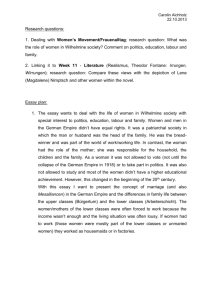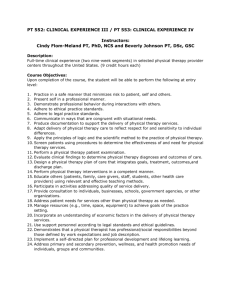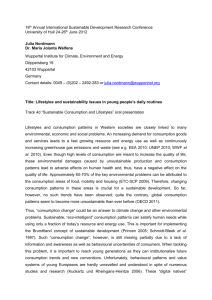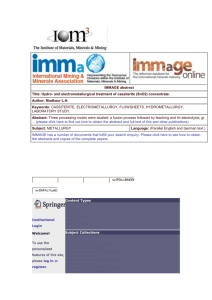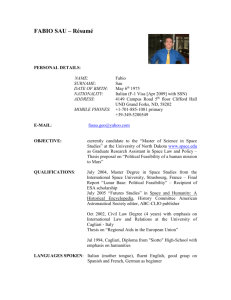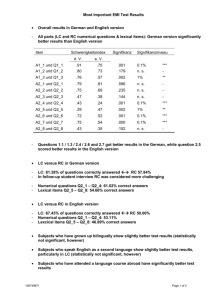Cultural Memory & Arts in Southeast Europe Conference
advertisement
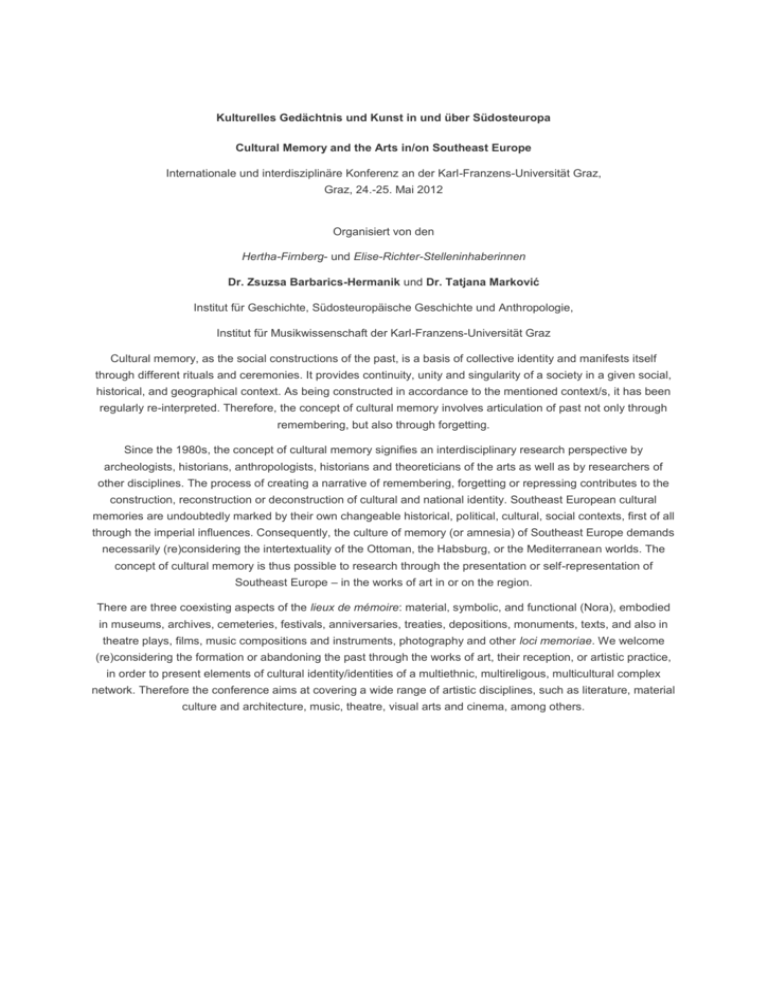
Kulturelles Gedächtnis und Kunst in und über Südosteuropa Cultural Memory and the Arts in/on Southeast Europe Internationale und interdisziplinäre Konferenz an der Karl-Franzens-Universität Graz, Graz, 24.-25. Mai 2012 Organisiert von den Hertha-Firnberg- und Elise-Richter-Stelleninhaberinnen Dr. Zsuzsa Barbarics-Hermanik und Dr. Tatjana Marković Institut für Geschichte, Südosteuropäische Geschichte und Anthropologie, Institut für Musikwissenschaft der Karl-Franzens-Universität Graz Cultural memory, as the social constructions of the past, is a basis of collective identity and manifests itself through different rituals and ceremonies. It provides continuity, unity and singularity of a society in a given social, historical, and geographical context. As being constructed in accordance to the mentioned context/s, it has been regularly re-interpreted. Therefore, the concept of cultural memory involves articulation of past not only through remembering, but also through forgetting. Since the 1980s, the concept of cultural memory signifies an interdisciplinary research perspective by archeologists, historians, anthropologists, historians and theoreticians of the arts as well as by researchers of other disciplines. The process of creating a narrative of remembering, forgetting or repressing contributes to the construction, reconstruction or deconstruction of cultural and national identity. Southeast European cultural memories are undoubtedly marked by their own changeable historical, political, cultural, social contexts, first of all through the imperial influences. Consequently, the culture of memory (or amnesia) of Southeast Europe demands necessarily (re)considering the intertextuality of the Ottoman, the Habsburg, or the Mediterranean worlds. The concept of cultural memory is thus possible to research through the presentation or self-representation of Southeast Europe – in the works of art in or on the region. There are three coexisting aspects of the lieux de mémoire: material, symbolic, and functional (Nora), embodied in museums, archives, cemeteries, festivals, anniversaries, treaties, depositions, monuments, texts, and also in theatre plays, films, music compositions and instruments, photography and other loci memoriae. We welcome (re)considering the formation or abandoning the past through the works of art, their reception, or artistic practice, in order to present elements of cultural identity/identities of a multiethnic, multireligous, multicultural complex network. Therefore the conference aims at covering a wide range of artistic disciplines, such as literature, material culture and architecture, music, theatre, visual arts and cinema, among others.






